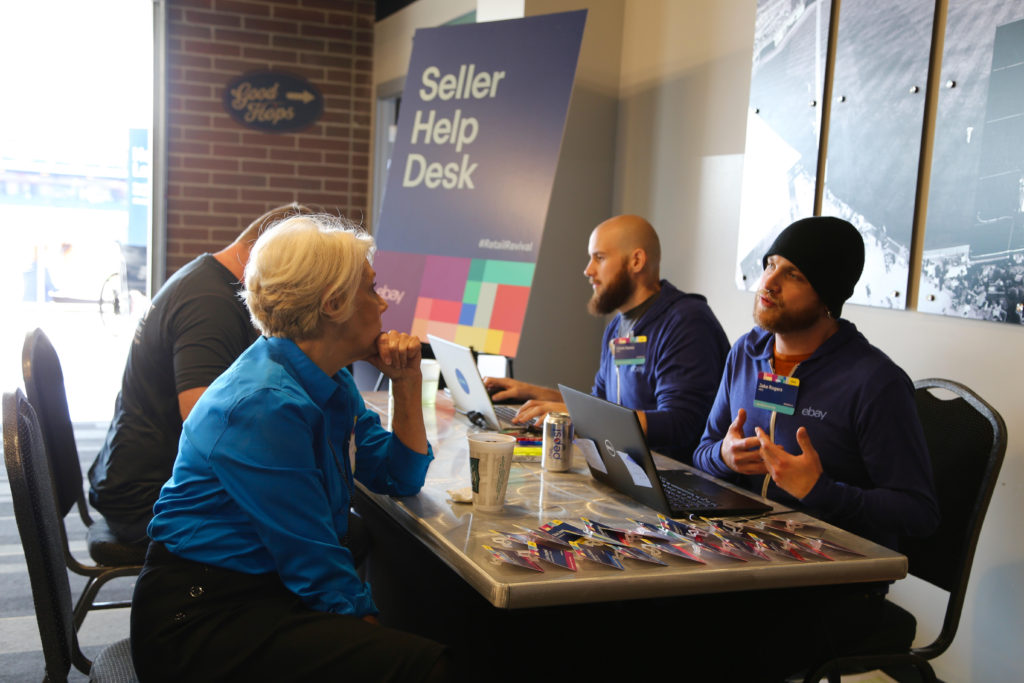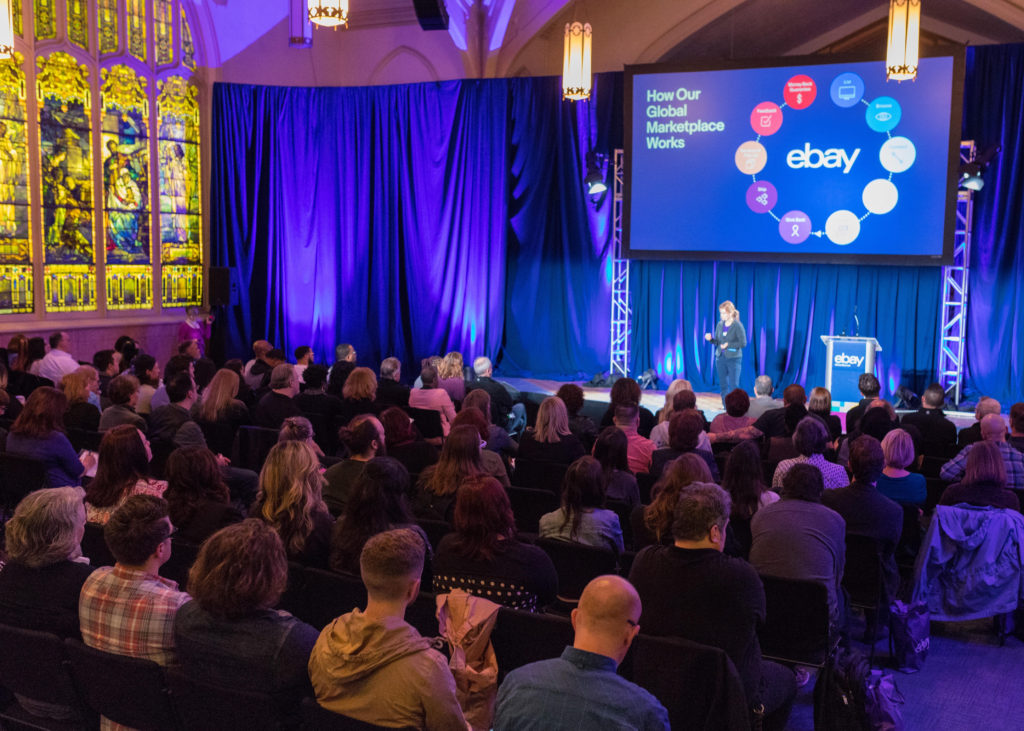Brands that focus on creating value for their communities reap the benefits many times over. Rather than thinking about how to make the most money in the fastest way, they ask themselves, “How can my business add the most value over time?”

A company doing a masterful job of building value for its communities is eBay. The e-commerce giant leverages its size and network to help small businesses and nonprofits, and in so doing grows its own bottom line. It’s a win-win approach to business, not a “winner takes all.”
A stand-out program is the eBay for Charity program, which enables buyers and sellers to support their favorite causes by shopping from charities or community sellers who support nonprofits. Sellers can donate a portion of their proceeds to a nonprofit of their choice – a generous act eBay matches by reducing their fees by the same percentage as the donation.
To further build the awareness, use and impact of eBay for Charity, eBay partners with celebrities and leading brands across the world to host high-profile auctions benefiting nonprofits, such as their recent Homes for Our Troops auction with Jake Tapper, Wynonna Judd and George Clooney. eBay also supports charities through “Gifts That Give Back,” which allow buyers to make a donation in the form of a symbolic gift, such as a lifesaving medicine or a goat for an impoverished family, to thousands of nonprofits.
To date, more than 83,500 global charities have registered on eBay for Charity, enabling $211 in charity funding every minute by eBay buyers and sellers, an increase of almost 10% compared to last year.
This week, eBay for Charity announced that the program has reached a major milestone ahead of its 2020 goal: $1 billion in total funds raised for charities around the world.

Also driving the company’s founding mission to create economic opportunity for all, eBay’s Retail Revival program is a great example of combining purpose and business growth. The program empowers local businesses to compete on a global scale and thrive in today’s economy. Through close partnerships with city governments and key local stakeholders, cohorts of small businesses are onboarded onto the platform and eBay supports their growth through 12 months of in-depth training, individual coaching, and promotional support, all provided at no cost to the participants or partner cities. Since its 2018 launch in Akron, Ohio, eBay has implemented the program in Lansing, Michigan, Greensboro, North Carolina, Baton Rouge, Louisiana here in the U.S. and internationally in Halifax, Canada, and Wolverhampton, U.K. The results? Participants have sold millions of dollars worth of products across the United States and in over 160 countries.
From a business perspective, both of these programs allow eBay to expand its product catalogue, offering unique merchandise to its millions of buyers, and gain consumer goodwill. That’s without considering its impact on building a better world by working to create economic opportunity in places it’s needed most. What’s more, these programs are rooted in the vision the company’s founder, Pierre Omidyar, established nearly 25 years ago: building a company committed to human-to-human interaction, economic inclusion and empowerment for all. eBay’s purposeful work provides valuable real world lessons for businesses driven to scale profit and impact.
Here are the top lessons from eBay on how to create value for your community while growing your business:
Help others achieve their goals:
It’s important to clarify what your company is good at and how it can add value to your stakeholders. If you’re a B2C business, think about how to solve social issues while meeting your customer’s needs. If you’re a B2B company, consider how you can help your clients be more economically, environmentally and ethically successful.
Retail Revival uses eBay’s resources to empower communities and spark local commerce. At the same time, eBay is investing in its own business by attracting new sellers that offer unique products for its marketplace.
eBay for Charity also makes it easier for sellers to link their products with donations. eBay facilitates the donation via PayPal, writes a tax-deductible receipt for the seller, and reduces its listing fees in proportion to the percentage donated.
eBay doesn’t own its own inventory or compete with its sellers – these programs are a win-win for customers, charities and sellers.
The lesson here is to find opportunities for mutual benefit. Combine your core business with your social good initiatives.

Provide skills training:
There’s a learning curve when people try a new product or service. In the early 2000s, social media was a novel platform that many people didn’t understand. Today, it is an essential communication tool for individuals and businesses.
Through Retail Revival, eBay is helping small business owners reach global markets. While some of these sellers might already be listed on eBay, the program helps small business owners optimize their online stores and gain new digital commerce skills.
The lesson here is that it’s critical to connect with your stakeholders to ensure they know how to use your products and understand their full value. This also strengthens relationships with your community.
Build bridges:
Success often depends on who you know. When you make an introduction or open a communication pathway, you can help foster mutually beneficial relationships. eBay is making connections at scale for small business owners, charities, eCommerce entrepreneurs and conscious consumers.
For example, when small businesses go through the Retail Revival program, they expand their community – both in their hometowns through networking with peers in the program and online as they connect with buyers across the globe. eBay’s taking Main Street online, offering a dedicated digital destination for Retail Revival sellers and a way for consumers to intentionally support local small businesses when shopping.
Ultimately, eBay is acting as the intermediary to help users on both sides of the checkout button cultivate valuable relationships.
Brands that position themselves as key value creators carve out a competitive advantage. This doesn’t only mean connecting sellers with opportunities to make money or consumers with the products they want. It also means helping stakeholders – from nonprofits to other businesses to government organizations to individuals – contribute to society in ways that benefit us all.

